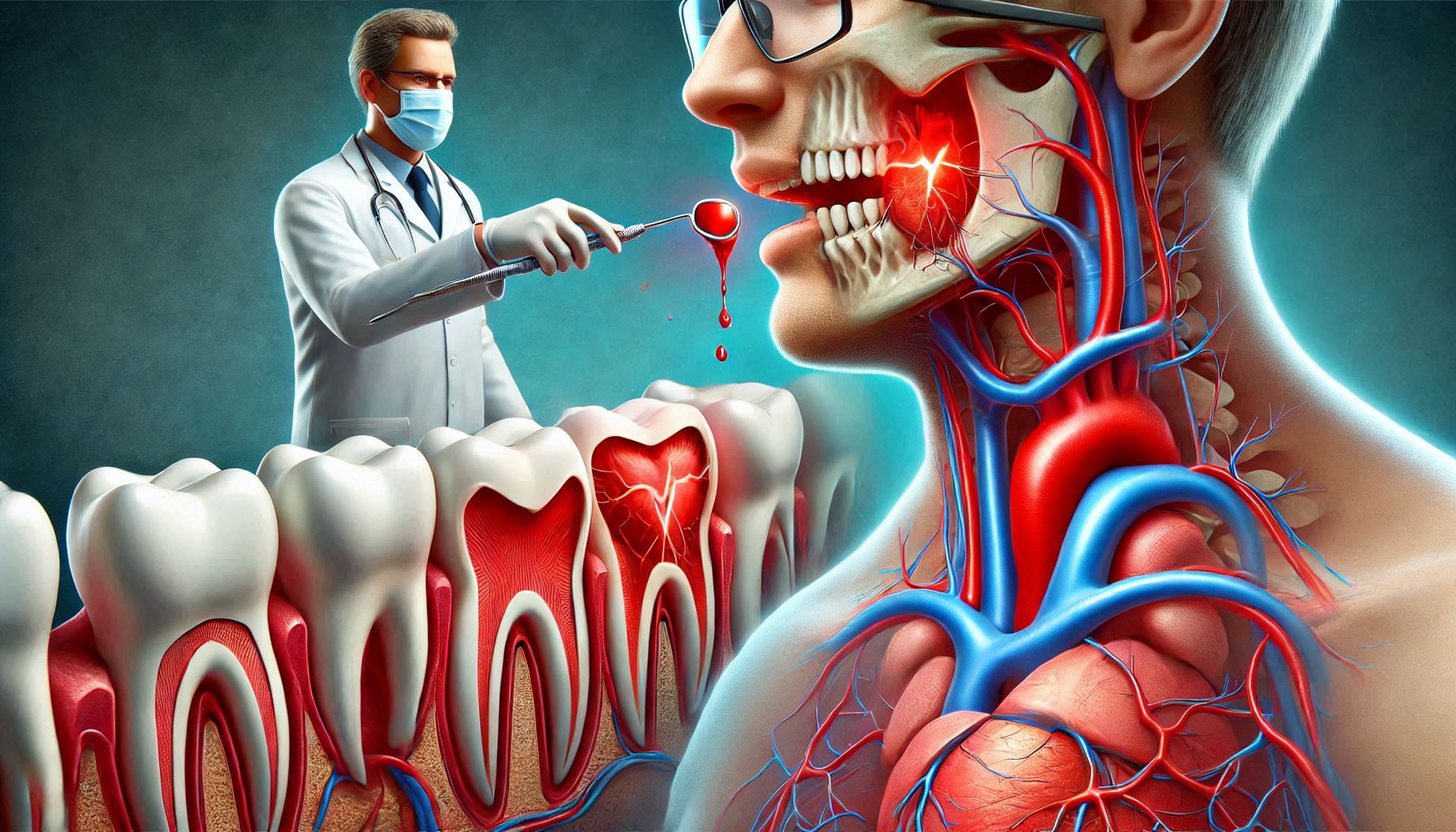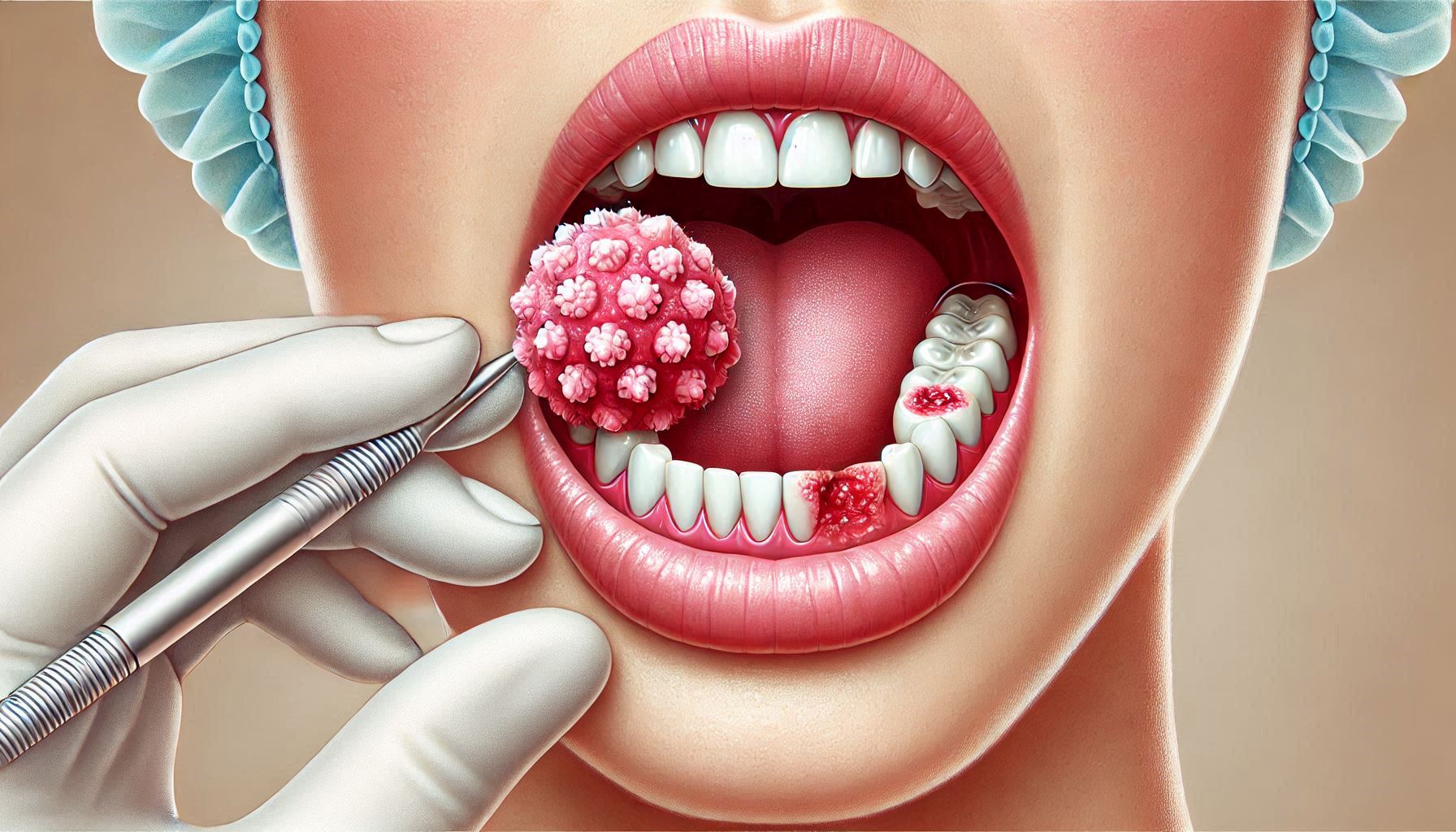The health of your mouth goes far beyond the simple prevention of cavities and the maintenance of a beautiful smile. Increasingly, research has unveiled a profound link between oral health and systemic health—especially when it comes to cardiovascular diseases. Many people are unaware that toothaches, gum disease, and other dental issues can act as early warning signals for heart disease and other serious cardiovascular conditions. Dentists are often at the front lines in identifying these links, which may make them some of the first healthcare professionals to notice warning signs of cardiovascular problems.
For most people, a trip to the dentist is about teeth cleaning, fillings, and routine exams. However, your dentist is likely to spot symptoms that could suggest more than just oral health concerns—they may indicate an increased risk for cardiovascular disease. In this comprehensive guide, we will delve deeply into the connections between toothaches, gum health, and heart disease, examining how the two are linked, why dentists may be among the first to detect early signs of cardiovascular trouble, and how maintaining optimal oral health can protect both your teeth and your heart.
Understanding the Oral-Systemic Connection
Historically, oral health was viewed as somewhat isolated from the rest of the body. However, the advent of modern research has shown that the condition of our mouth is intricately connected to our overall health. The term “oral-systemic connection” refers to the concept that what happens in the mouth has significant implications for the body as a whole. This connection has far-reaching consequences, including links to systemic conditions such as diabetes, respiratory diseases, and, importantly, heart disease.
The mouth is teeming with bacteria, some of which are beneficial, while others are harmful. When proper oral hygiene is neglected, these harmful bacteria can proliferate, contributing to a range of oral diseases, from cavities to gum infections. Most commonly, untreated plaque—the sticky, bacteria-laden substance that builds up on teeth—can lead to gum disease (periodontitis), tooth decay, and infections. The bacteria in plaque and the toxins they produce can lead to inflammation in the mouth. But what many people don’t realize is that this inflammation can extend beyond the mouth and have systemic effects on the entire body, including the cardiovascular system.
How Gum Disease Can Increase the Risk of Heart Disease
Gum disease, particularly in its advanced form—periodontitis—can be a contributing factor to heart disease. The link between these two conditions is primarily due to inflammation. When bacteria infect the gums, they cause inflammation that can spread into the bloodstream. This is important because inflammation is a key contributor to many types of cardiovascular diseases, including coronary artery disease and atherosclerosis.
Atherosclerosis is the process by which fatty plaques, made up of cholesterol, fat, and other substances, build up in the arteries, restricting blood flow. Inflammation in the body plays a central role in the development of atherosclerosis by damaging the walls of the arteries, allowing these fatty deposits to accumulate. When bacteria from infected gums enter the bloodstream, they can cause an inflammatory response in the arteries, contributing to the development of these plaque formations.
Furthermore, some research suggests that certain bacteria associated with gum disease, such as Porphyromonas gingivalis, may play a direct role in atherosclerosis. These bacteria can travel through the bloodstream and attach to the walls of blood vessels, leading to inflammation and contributing to plaque buildup. This suggests that the bacteria from your mouth could be actively influencing the health of your cardiovascular system in ways that go beyond what was previously understood.
Studies have shown that individuals with periodontal disease are more likely to develop heart disease compared to those with healthy gums. Research has indicated that gum disease may increase the risk of cardiovascular events, such as heart attacks and strokes, by up to 50%. The presence of gum disease may be a marker for undiagnosed cardiovascular issues, making regular dental exams a critical component of overall heart health.
The Role of Toothaches: An Indication of Systemic Health Issues
Toothaches are one of the most common and uncomfortable dental problems. While they are often the result of cavities or tooth infections, toothaches can also signal a deeper issue—potentially related to heart disease. A persistent toothache, left untreated, may lead to infections that cause abscesses and further complications, which could, in turn, increase the risk of bacteria entering the bloodstream.
There is also emerging evidence that untreated dental infections, such as those caused by deep cavities, abscesses, or gum disease, may be linked to systemic inflammation and other health issues, including heart disease. The process by which an untreated tooth infection could affect the cardiovascular system typically begins when bacteria from the infected tooth or gum travel through the bloodstream, triggering an inflammatory response in other parts of the body. This response can contribute to the progression of heart disease, making it essential to treat dental infections promptly.
A toothache may also reflect chronic dental neglect, which could indicate other lifestyle habits that are detrimental to heart health. For example, people with poor oral hygiene may also engage in other health-compromising behaviors, such as smoking or poor dietary choices, which are risk factors for both gum disease and cardiovascular problems. In this way, a toothache can serve as a red flag that may prompt both individuals and healthcare professionals to pay closer attention to a person’s overall health, including the state of their heart.
Recognizing Early Signs of Heart Disease in Your Mouth
Interestingly, dentists are often the first healthcare professionals to spot signs of potential heart disease in patients. This is because certain oral health conditions are highly correlated with cardiovascular problems. For instance, gum disease is one of the most well-established risk factors for heart disease, and a dentist may be the first to notice it.
Some key oral health issues that could signal an increased risk for cardiovascular disease include:
- Bleeding Gums: One of the most noticeable signs of gum disease is the presence of bleeding when brushing or flossing. Healthy gums should not bleed easily, so bleeding gums are often an indicator of gingivitis (the earliest stage of gum disease) or more advanced periodontal disease. Research has shown that people with gum disease have higher levels of systemic inflammation, which may increase their risk for heart disease.
- Receding Gums: Gums that recede, or pull back, from the teeth, expose more of the tooth and create pockets where bacteria can accumulate. This condition is often a sign of advanced gum disease and could signal a higher risk for cardiovascular disease.
- Persistent Bad Breath (Halitosis): Chronic bad breath, which may be caused by a bacterial infection in the gums, can be an indication of gum disease. In fact, some studies have linked halitosis to an increased risk of heart disease, suggesting that the underlying inflammation and bacterial growth may extend beyond the mouth and affect cardiovascular health.
- Loose Teeth: Teeth that become loose, especially in adults who previously had healthy teeth, can be a sign of severe gum disease. Periodontitis, the advanced form of gum disease, causes the bone that holds teeth in place to deteriorate, potentially leading to tooth loss. This loss of teeth and structural damage is a red flag for both oral and cardiovascular health.
- Dry Mouth: Dry mouth, or xerostomia, is a condition that occurs when there is insufficient saliva production. While dry mouth is often associated with medications, it can also be a sign of a more significant health problem, including an increased risk of gum disease. In some cases, dry mouth may also be linked to cardiovascular disease, as it can lead to an increase in plaque buildup and other oral health complications.
The Pathophysiology Behind the Connection: How Oral Infections Affect the Heart
To fully understand the connection between gum disease and heart disease, it’s important to explore the underlying biological mechanisms. The key to this connection lies in the way oral infections, such as those caused by gum disease, trigger systemic inflammation.
When harmful bacteria accumulate in the mouth, they form plaque and irritate the gums, leading to gingivitis. If gingivitis is left untreated, it can develop into periodontitis, where the infection spreads deeper into the gums, tissues, and even the bone that supports the teeth. As the body’s immune system responds to the infection, it releases inflammatory chemicals and proteins that circulate throughout the bloodstream. This is where the connection to heart disease becomes clear.
These inflammatory markers have been linked to the development of atherosclerosis, a condition characterized by the hardening and narrowing of the arteries due to the accumulation of plaque. The chronic inflammation caused by gum disease may increase the risk of plaque buildup in the arteries, reducing blood flow to the heart and other vital organs. Additionally, the release of certain proteins, such as C-reactive protein (CRP), has been associated with both gum disease and heart disease.
It’s important to note that the relationship between oral infections and cardiovascular disease is bidirectional. Not only can gum disease increase the risk of heart disease, but people with pre-existing cardiovascular conditions are more likely to develop gum disease, as their immune systems may be less effective at fighting infections.
Preventing Gum Disease and Protecting Your Heart
The good news is that the connection between oral health and heart health doesn’t mean that these problems are inevitable. With proper oral hygiene and regular dental care, both gum disease and heart disease can often be prevented or managed. Here are some practical steps to protect both your teeth and your cardiovascular system:
- Regular Dental Checkups: Schedule a dental checkup at least twice a year. Your dentist will not only clean your teeth but also check for early signs of gum disease and other oral health problems that could increase your risk for cardiovascular disease. Regular exams also allow for early detection and treatment of any issues that may arise.
- Brushing and Flossing: Good oral hygiene starts at home. Brush your teeth at least twice a day with fluoride toothpaste, and don’t forget to floss daily. Flossing removes food particles and plaque from between the teeth and along the gumline, areas that are difficult for a toothbrush to reach.
- Quit Smoking: Smoking is a major risk factor for both gum disease and heart disease. Quitting smoking can dramatically improve both your oral and cardiovascular health.
- Healthy Diet: Eating a heart-healthy diet that includes plenty of fruits, vegetables, whole grains, and lean proteins can improve gum health and reduce the risk of heart disease. Avoid excessive sugar and processed foods, which can contribute to both gum disease and cardiovascular problems.
- Manage Stress: Chronic stress can contribute to both gum disease and heart disease. Finding healthy ways to manage stress—whether through exercise, meditation, or other relaxation techniques—can benefit both your oral health and your heart health.
- Control Chronic Conditions: If you have chronic conditions such as diabetes or high blood pressure, work with your healthcare provider to manage them effectively. Both of these conditions are linked to an increased risk of gum disease and heart disease.
- Stay Hydrated: Drinking plenty of water helps keep your mouth moist and your saliva flowing. Saliva is important for neutralizing acids in the mouth and washing away food particles and bacteria. This helps prevent plaque buildup and the development of gum disease.
Conclusion
The link between oral health and cardiovascular disease is clear and significant. Gum disease, toothaches, and other oral health issues can act as early indicators of your overall well-being, particularly your risk for heart disease. Emerging research has shown that poor oral hygiene and untreated dental conditions, such as gum disease, can lead to systemic inflammation, which in turn may contribute to heart disease, stroke, and other cardiovascular problems. This connection underscores the importance of taking care of your teeth and gums—not just for aesthetic reasons, but for your heart health as well. Maintaining good oral hygiene is a simple yet powerful way to reduce your risk. Brushing your teeth twice daily, flossing regularly, and visiting your dentist for routine checkups are essential practices for preventing gum disease and cavities. When caught early, dental issues are often easily treatable, but neglecting them can lead to more severe complications, including infections that may impact your heart.
Dentists play a crucial role in identifying potential signs of cardiovascular problems. During dental exams, they can detect early signs of gum disease, tooth infections, and other conditions that may indicate a higher risk of heart disease. Regular dental visits provide an opportunity to discuss any concerns with your dentist, who may help you recognize red flags and encourage proactive care to manage both oral and heart health. By prioritizing oral care, you’re not just preserving your smile—you’re protecting your heart and improving your quality of life. The benefits of a healthy mouth extend far beyond cosmetic appearance, as optimal oral hygiene can reduce your risk of heart disease, lower systemic inflammation, and promote overall well-being. Taking care of your mouth today will help safeguard your heart and enhance your long-term health.
SOURCES
American Heart Association. 2019. Heart disease and stroke statistics—2019 update: A report from the American Heart Association. Circulation, 139(10), e56-e528.
Beck, J. D., Eke, P. I., Lamster, I. B., Mouth, P., & Sommers, J. R. 2005. The influence of periodontal disease on systemic disease. Journal of Periodontology, 76(2), 169-175.
Cai, X., Yan, X., Chen, S., & Zhang, Y. 2017. The relationship between periodontal disease and cardiovascular diseases: A review. European Journal of Preventive Cardiology, 24(1), 5-13.
Desvarieux, M., Demmer, R. T., Muller, H., Harris, T. B., Speizer, F. E., Tavani, A., & Gonçalves, D. 2011. Periodontal disease and risk of coronary heart disease: The oral infections and vascular disease epidemiology study (INVEST). Circulation, 123(2), 208-214.
Genco, R. J., Carnevale, B., Lu, S., & Farina, D. 2013. Periodontitis and atherosclerosis: The role of systemic inflammation in cardiovascular disease. Current Opinion in Cardiology, 28(5), 523-528.
Hajishengallis, G. 2015. Periodontitis: A polymicrobial disruption of host homeostasis. Nature Reviews Microbiology, 13(7), 457-470.
Loos, B. G., Alonso, A., Boucher, T. S., & Bitar, A. 2004. The effects of periodontal disease on cardiovascular health. Journal of Clinical Periodontology, 31(7), 529-536.
Mendel, B., Poggio, G. D., & Papanastassiou, T. A. 2016. Periodontal diseases as risk factors for cardiovascular disease: An overview. Current Atherosclerosis Reports, 18(12), 71-76.
Sanz, M., & Marsh, P. D. 2012. Periodontitis and cardiovascular disease: A review of the literature. Journal of Periodontal Research, 47(4), 352-356.
Verschuur, G. M., Gijsen, F. J., Swanenberg, J., & Bongers, D. 2019. Oral health and cardiovascular diseases: Exploring the link and its biological plausibility. Journal of Cardiovascular Risk, 26(1), 1-10.
HISTORY
Current Version
January 17, 2025
Written By:
SUMMIYAH MAHMOOD




